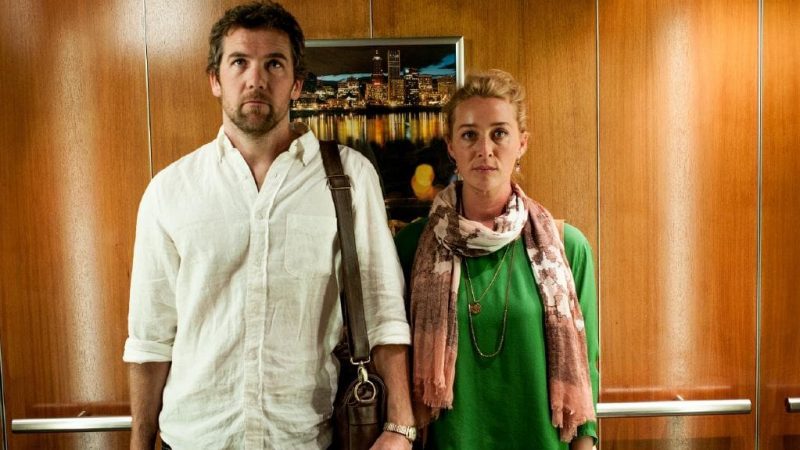Content quotas should bind streaming platforms, not be abolished for commercial networks, says union
Content quotas for children’s content and local drama should be expanded to bind Netflix, Stan, Disney+ and other streaming platforms, not scrapped in response to commercial networks’ threats of protest, says the union representing performers and screen workers.
Last week, Seven West Media signalled it would be prepared to breach its obligation under the Broadcasting Services Act to air 260 hours of children’s programs, 130 hours of preschool programs and 250 points of first-release Australian drama. These quotas should be scrapped by the Morrison government, CEO James Warburton argued, because they stifle commercial networks while not applying to streaming platforms.
“We’ve been clear for a long time that the children’s content quota was not a sustainable one for us and the wider commercial television industry in Australia,” Warburton told The Sydney Morning Herald. Seven would fulfil its 2020 obligations, but could fail to comply from as early as next year by halting the production of its children’s content and staying away from new Australian dramas, Warburton told Communications Minister Paul Fletcher in a letter advising of his network’s decision.

Local dramas would be at risk should the networks follow through on their threats
Competitor Hugh Marks, Nine’s CEO, agreed that the networks “need action [from the government] and we need it now”.
Fast forward to this week, and Fletcher sympathised with the chief executives’ perspective in a debate that has stretched on for years.
“Traditional broadcast television is facing sharp declines in viewer numbers and revenues – yet existing regulations require industry participants to spend millions on shows which fewer and fewer people are watching,” he said.
Now, the Media Entertainment and Arts Alliance (MEAA) has responded, calling for content rules to be applied to digital platforms and streaming services, rather than abolished in a move it says will impact the production and visibility of important Australian stories.
“Changes in viewing habits mean there must be reform of content rules to ensure that Australian stories are shown on global streaming services that want access to Australian audiences,” said MEAA chief executive Paul Murphy.
“There needs to be a level playing field regardless of the platform that audiences view programs on.
“But that should not release free-to-air television from its own requirements to produce local and children’s content.”

MEAA’s Paul Murphy
MEAA has been pushing for updates to the rules as part of the Make it Australian coalition, a campaign that pushes for “our stories on screen”.
Following Fletcher’s comments that the government is looking at changing the rules to apply to streaming platforms, MEAA also emphasised the importance of consultation.
“Changes to content rules have the potential to have huge impact on the creatives, performers, technicians and businesses who make up the Australian screen production industry,” Murphy added.
“The government needs to make sure any proposed changes won’t be a wrecking ball to an important industry that is in many ways Australia’s voice to the world.”
Seven’s threats followed the media company reporting a $67m half0year loss. Nine, which won the 2019 ratings year, reported a 9% drop in profits, while both networks also flagged they would pull back investment in international content and one-off sporting events.


So you’re going to mandate what content people watch on streaming platforms? Unions! Freedom for everyone!
Quotas are just a form of protectionism that’s not fit for the digital age.
Australia is only a small market, if we start becoming to demanding, the streamers may end up leaving our shores and everybody is worst off, think piracy.
Let the people decide what they want to watch, not some union.
No-one is dictating what you watch you silly duffers.
This is a ‘social contract’.
The broadcast airwaves are ‘owned’ by the people of Australia. The FTAs pay peanuts compared to what the value of the bandwidth is, after they sweet-talked the government into slashing their fees. Since when does bandwidth get cheaper?
Part of that ‘social contract’ is to produce certain levels of Australian content.
Sure if you want to stream whatever content you want from wherever you want then that is fine as the Internet is global, and the concept of ‘local’ is vague.
But that it the contract that the FTAs signed-up for. Why should the everyday Aussie be the loser from something they own because the FTA model has been found to be delinquent.
Is it just coincidence that the reduction in FTA quality content aligns with reduction in audience numbers – and hence advertising rates and revenue.
Maybe, just maybe, properly funding quality content would attract larger audiences, along with higher advertising rates and revenue.
As the old saying goes … no-one ever cut their way to growth.